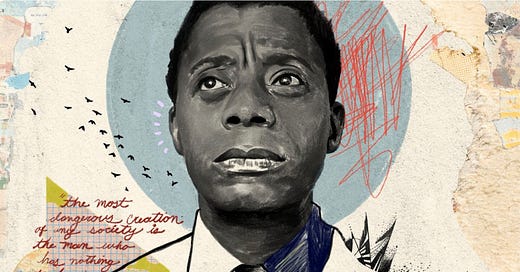Happiest of Happy Birthdays to the one and only James Baldwin!
He would have been 100 years old today. It is very fitting that his family has created a new website to centralize the best of Baldwin. Behold:
You can access The Official James Baldwin website at: https://www.jamesbaldwin.info.
Keep reading with a 7-day free trial
Subscribe to Witness to keep reading this post and get 7 days of free access to the full post archives.




